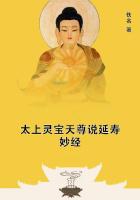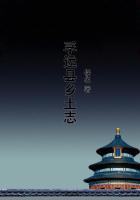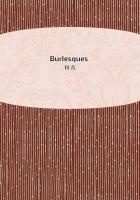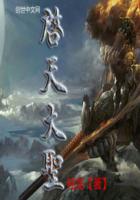There has been a long dispute among the modern critics whether the Romans derived their satire from the Grecians or first invented it themselves. Julius Scaliger and Heinsius are of the first opinion; Casaubon, Rigaltius, Dacier, and the publisher of Dauphin's Juvenal maintain the latter. If we take satire in the general signification of the word, as it is used in all modern languages, for an invective, it is certain that it is almost as old as verse; and though hymns, which are praises of God, may be allowed to have been before it, yet the defamation of others was not long after it.
After God had cursed Adam and Eve in Paradise, the husband and wife excused themselves by laying the blame on one another, and gave a beginning to those conjugal dialogues in prose which the poets have perfected in verse. The third chapter of Job is one of the first instances of this poem in Holy Scripture, unless we will take it higher, from the latter end of the second, where his wife advises him to curse his Maker.
This original, I confess, is not much to the honour of satire; but here it was nature, and that depraved: when it became an art, it bore better fruit. Only we have learnt thus much already--that scoffs and revilings are of the growth of all nations; and consequently that neither the Greek poets borrowed from other people their art of railing, neither needed the Romans to take it from them. But considering satire as a species of poetry, here the war begins amongst the critics. Scaliger, the father, will have it descend from Greece to Rome; and derives the word "satire" from Satyrus, that mixed kind of animal (or, as the ancients thought him, rural god) made up betwixt a man and a goat, with a human head, hooked nose, pouting lips, a bunch or struma under the chin, pricked ears, and upright horns; the body shagged with hair, especially from the waist, and ending in a goat, with the legs and feet of that creature. But Casaubon and his followers, with reason, condemn this derivation, and prove that from Satyrus the word satira, as it signifies a poem, cannot possibly descend. For satira is not properly a substantive, but an adjective; to which the word lanx (in English a "charger" or "large platter") is understood: so that the Greek poem made according to the manners of a Satyr, and expressing his qualities, must properly be called satirical, and not satire.
And thus far it is allowed that the Grecians had such poems, but that they were wholly different in species from that to which the Romans gave the name of satire.
Aristotle divides all poetry, in relation to the progress of it, into nature without art, art begun, and art completed. Mankind, even the most barbarous, have the seeds of poetry implanted in them.
The first specimen of it was certainly shown in the praises of the Deity and prayers to Him; and as they are of natural obligation, so they are likewise of divine institution: which Milton observing, introduces Adam and Eve every morning adoring God in hymns and prayers. The first poetry was thus begun in the wild notes of natural poetry before the invention of feet and measures. The Grecians and Romans had no other original of their poetry.
Festivals and holidays soon succeeded to private worship, and we need not doubt but they were enjoined by the true God to His own people, as they were afterwards imitated by the heathens; who by the light of reason knew they were to invoke some superior being in their necessities, and to thank him for his benefits. Thus the Grecian holidays were celebrated with offerings to Bacchus and Ceres and other deities, to whose bounty they supposed they were owing for their corn and wine and other helps of life. And the ancient Romans, as Horace tells us, paid their thanks to Mother Earth or Vesta, to Silvanus, and their Genius in the same manner. But as all festivals have a double reason of their institution--the first of religion, the other of recreation for the unbending of our minds--so both the Grecians and Romans agreed (after their sacrifices were performed) to spend the remainder of the day in sports and merriments; amongst which songs and dances, and that which they called wit (for want of knowing better), were the chiefest entertainments. The Grecians had a notion of Satyrs, whom I have already described; and taking them and the Sileni--that is, the young Satyrs and the old--for the tutors, attendants, and humble companions of their Bacchus, habited themselves like those rural deities, and imitated them in their rustic dances, to which they joined songs with some sort of rude harmony, but without certain numbers; and to these they added a kind of chorus.
The Romans also, as nature is the same in all places, though they knew nothing of those Grecian demi-gods, nor had any communication with Greece, yet had certain young men who at their festivals danced and sang after their uncouth manner to a certain kind of verse which they called Saturnian. What it was we have no certain light from antiquity to discover; but we may conclude that, like the Grecian, it was void of art, or, at least, with very feeble beginnings of it.















